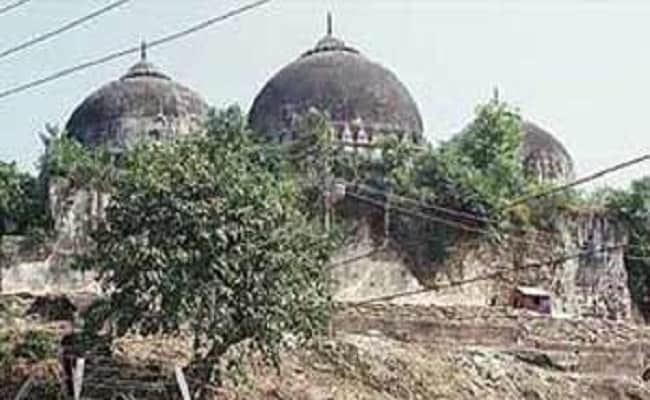7 years ago
Supreme Court will begin the hearing of Ram Janambhoomi - Babri Masjid case. A batch of 13 appeals had been filed in the top court against the Allahabad High Court verdict that directed division of 2.77 acres of land of the disputed Ram Janmabhoomi-Babri Masjid site in Ayodhya into three parts. A Special bench of Justices Dipak Misra (CJI), Ashok Bhushan and S Abdul Nazeer will begin the final hearing of the case.
On December 6, 1992, hundreds of right wing activists razed the 16th-century Babri mosque claiming it was built on a temple marking the birthplace of Lord Ram. The mosque demolition changed the face of Indian politics, and the dispute is still being heard in courts.
The Supreme Court suspended the High Court's verdict in 2011, but has yet to begin hearing appeals by the parties involved. In March, then Chief Justice JS Khehar to negotiate a settlement out of court and offered his services as a mediator.
On December 6, 1992, hundreds of right wing activists razed the 16th-century Babri mosque claiming it was built on a temple marking the birthplace of Lord Ram. The mosque demolition changed the face of Indian politics, and the dispute is still being heard in courts.
The Supreme Court suspended the High Court's verdict in 2011, but has yet to begin hearing appeals by the parties involved. In March, then Chief Justice JS Khehar to negotiate a settlement out of court and offered his services as a mediator.
Here are the live updates Ayodhya Case hearing:
"Final Hearing" Starts February 8, 2018
Ayodhya Case: Supreme Court Likely To Decide Final Hearing Date Today
On December 6, 1992, thousands of right-wing activists razed the Babri Masjid in Ayodhya, claiming it was built on a temple marking the birthplace of Lord Ram which was destroyed in the 16th century.

On December 6, 1992, thousands of right-wing activists razed the Babri Masjid in Ayodhya, claiming it was built on a temple marking the birthplace of Lord Ram which was destroyed in the 16th century.

In 2010, the Allahabad High Court accepted that the disputed site of 2.77 acres was the birthplace of Lord Ram. It said two-thirds of the land should be allotted to two Hindu organisations, and the remainder to Muslims. While Hindus want to build a Ram Mandir or Ram temple, Muslims say they should be allowed to construct a new mosque.
Here is the timeline of the issue:
- The Babri Masjid was built in Ayodhya in 1528. Hindu groups claim it was built after demolishing a temple.
- In 1853, the first recorded communal clashes over the site took place.
- In 1859, the British administration put a fence around the site marking separate areas of worship for Hindus and Muslims, and it stood that way for nearly 90 years.
- For the first time, the property dispute went to court in 1949 after idols of Lord Ram were placed put inside the mosque.

